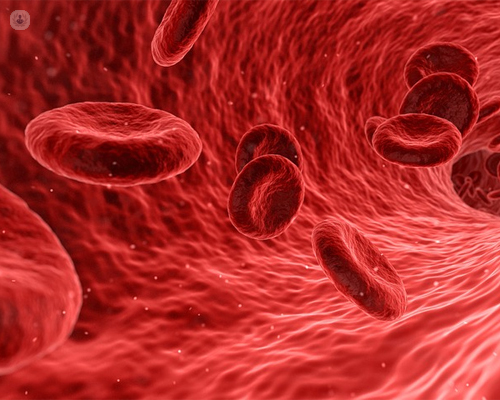Anticoagulants and hematology fertility
Written by:What are anticoagulants?
Put in an easy way, are those drugs that decrease blood clotting. That is to say, that we are going to use them to prevent or treat the formation of clots, that is, thromboses. There are two types: those that are punctured, such as Heparin, which are used at the acute moment, at the time of diagnosis. And those that are taken orally that are planned for longer treatments. There are three groups of patients who are going to need anticoagulants. Those who need to treat or prevent thrombosis in the veins of the legs or in the lung, those with cardiovascular diseases, especially an important group that has atrial fibrillation that also need to be protected from the emboli, and the third group those that are operated on the heart and they are carriers of a heart valve.

New drugs have recently come out. Are they better than the Cintron?
It is a difficult question. For 50 years we have had the Cintron, now we have three new drugs, Pradaxa, Xarelto and Eliquis. And they certainly have great advantages, but these advantages do not occur in all patients, there may even be disadvantages for some patients in particular. But we can give some clue. Patients who are carriers of heart valves should continue with Cintron because these medications are ineffective in them. Patients who have been with Cintron for many years and who have been well controlled, who have not had any complications, are not likely to benefit from the change. And also patients who have had problems with Cintron, who are poorly controlled or have had some complication are very likely to benefit from the change, always under the direction of a doctor expert in anticoagulant treatment.
What is the self-control of anticoagulant treatment?
It is a system in which the patient taking Cintron has a device and can be analyzed at home, the analysis itself can be done. You can even adjust the dose yourself or under supervision. It has a great advantage over the usual treatment, which is that we can do the controls much more frequently, we can do them once a week instead of once a month, which is what is done when going to the ambulatory or to a hospital. Controlling more often allows for better control, fewer complications, and no doubt it is the safest treatment for patients in the long term.
Are there blood problems that affect fertility?
The issue of fertility is a sensitive issue. If we focus on the feminine aspect we know that multiple factors influence: age, oocyte quality, ovules, endocrine, immunological factors, etc.. We also know that there are a series of hematological factors almost all related to thrombophilia, with the tendency to have thrombi, which can be accompanied by fertility problems. Fundamentally repeated abortions and implantation failures. This has been seen because patients with repeated thrombosis not only had thrombosis but also problems of this type. The advantage is that it has a good treatment. Therefore, if there is no other cause that explains a repeat abortion or implantation problems, one of the topics that must be studied is the hematological issue.


